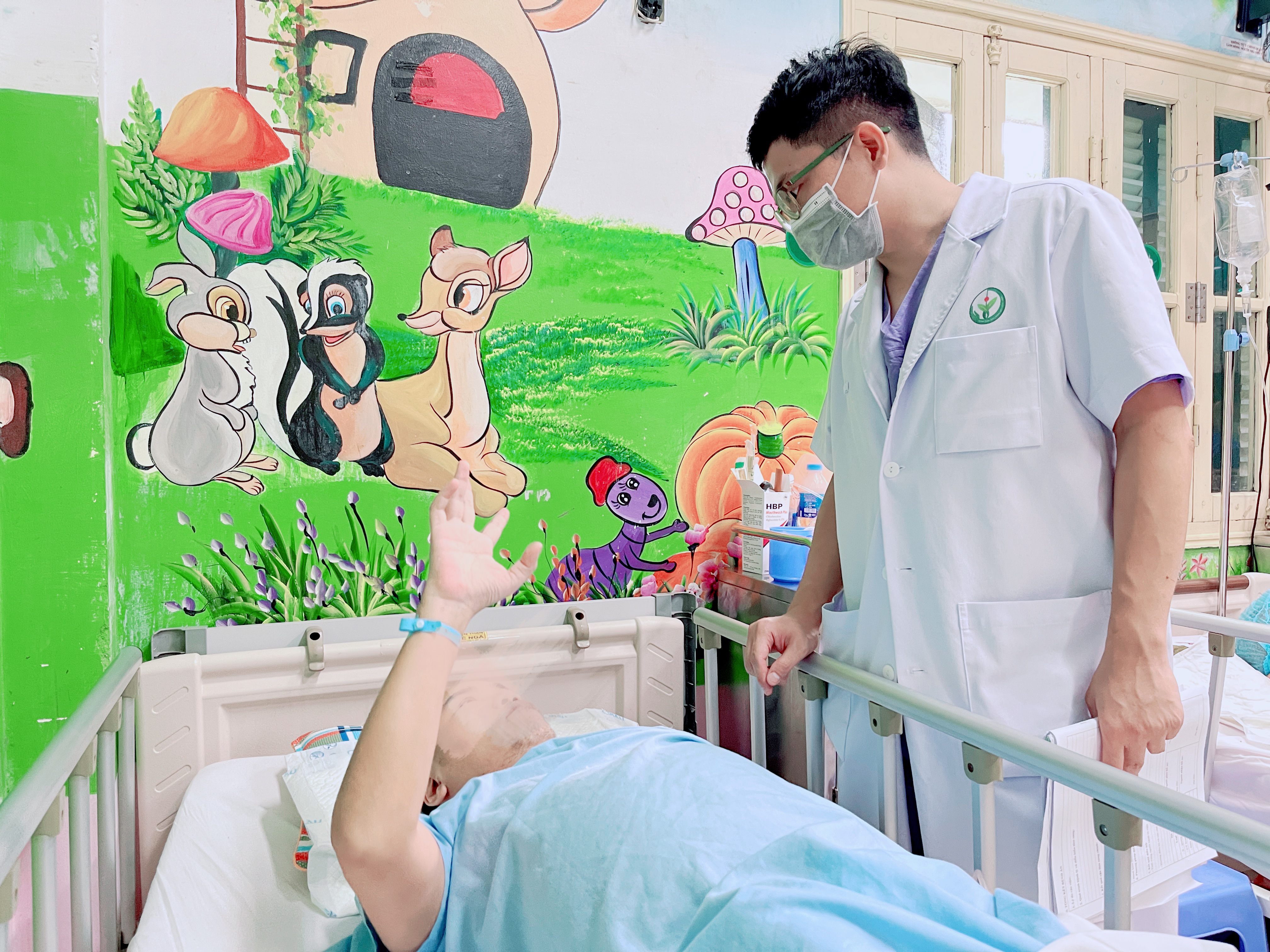Large craniopharyngioma puts a 40-year-old male patient at risk of total blindness in both eyes
30/09/2022 10:43
On 7th September, Assoc. Prof. Dong Van He, MD, PhD – Vice Director of Viet Duc University Hospital, Director of Neurosurgery Center shared that doctors had successfully operated a craniopharyngioma for a male patient D.M.L, 40 years old, in Hanoi, helped patient to avoid the risk of total blindness in both eyes because of large tumor causing compression damage around the base of pituitary gland.
Ms. N.T.T, patient L’s mother said that Mr. L has been detected a craniopharyngeal tumor in April 2022, had the first surgery on April 27th in a hospital at central level and went to three other hospitals for treatment. However, after the operation, Mr. L had a constant headache, vomiting and could not eat, his left eye could not see anything, his right eye was blurry, so the family decided to take him to Viet Duc University Hospital.

A large craniopharyngioma tumor compressed the optic nerve on both sides caused blurred vision
Sharing about the case, Assoc. Prof. Dong Van He, MD, PhD – Director of Center for Neurosurgery, Viet Duc University Hospital said: Patient D.M.L was admitted to the hospital in a pre-operative condition with both eyes were negative light and dark. Patients had endocrine disorders, large craniopharyngeal tumor compresses the optic nerve on both sides, causing blurred vision. To remove the tumor, very challenging for surgeons because this tumor is large, especially after surgery, the tumor tissue often adhered to or invades the optic nerve, the important cerebral arteries of the skull base. With large craniopharyngeal tumors causing blurred vision, surgery is the main treatment method, which can be open surgery or laparoscopic surgery. In case of Mr. L was indicated for open surgery due to the large tumor size of about 4x5cm.
On September 1st , surgeons successfully operated on Mr. L. Currently, the patient is awake; his right eye can see 4m; his left eye begins to see the shadow of his hand. The patient continues to be treated for endocrine disorders and must be monitored regularly.

Doctor re-examinates Mr. L post-surgery
Craniopharyngeal tumors, although benign, are also considered malignant tumors because they are located at the many important brain structures (hypothalamus, pituitary stalk, carotid artery, optic senses, …) causing severe symptoms and sequelae. In addition, the syndromes of adrenal insufficiency, endocrine disorders, and hypothyroidism caused by tumors also increase the risk of severe progression after treatment.
Symptoms depend on the location, size of the tumor and the patient’s age. Besides, endocrine disorders are also common causes leading to symptoms such as: Headache, fatigue, personality changes, mood changes; vomiting, nausea; Visual dysfunction: Blurry vision, even blindness if the tumor compresses the optic nerve, optic interference, … If the patient has symptoms of headache, vomiting, decreased vision, abnormal body temperature … should quickly go to the hospital for timely treatment, the earlier the detection, the easier the surgery, the better the treatment results, Assoc. He for more information











